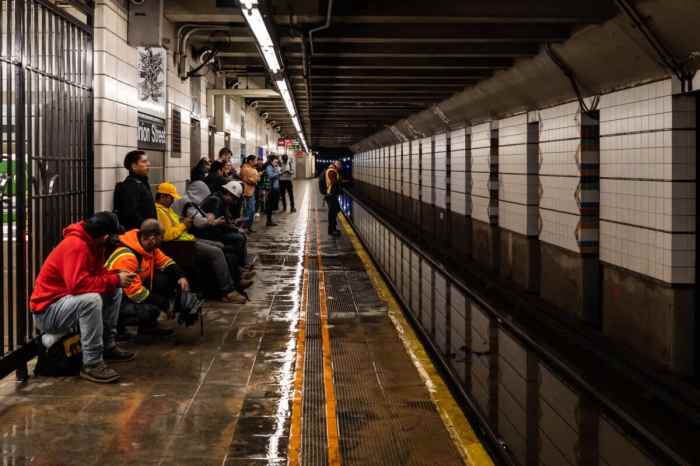By Philip Newman
Nearly a third of those polled by the transit advocacy agency Straphangers Campaign favor the Metropolitan Transportation Authority’s Plan B, which would raise subway and bus fares by 50 cents to $2.
The MTA has made three proposals that would increase fares in face of what it contends is a looming deficit.
Plan B, which received 458 votes, or 29.3 percent of respondents, would mean no cuts in service and a $2 fare but would provide deeply discounted unlimited ride MetroCards. A seven-day MetroCard would cost anywhere from $18.50 to $20.50 with a 30-day MetroCard costing from $69 to $76.50.
The Straphangers said its poll, conducted through its Internet site www.straphangers.org, had 52 votes, or 3.3 percent of participants, favoring MTA Option A, which would mean cuts in service and a hike from $1.50 to $1.75 for basic fares.
The poll recorded 85 votes, or 5.4 percent for MTA Plan C, which would bring no cuts in services and a $2 fare along with higher costs for seven-day MetroCard and $84 for a 30-day MetroCard.
The poll included responses from 69 people (4.4 percent) who mentioned other alternatives unspecified by the Straphangers.
The option that logged the most votes at 607, or 38.8 percent, called on the MTA to provide more information on its finances before raising fares or cutting service.
About a fifth of respondents — 292, or 18.7 percent — said they want the governor and mayor to find different sources of revenue to prevent a fare hike, like new bridge tolls or taxes.
There were 1,561 participants in the poll.
The three options were first disclosed last month at a meeting of the MTA, which said it was facing an $815 million deficit for the subway and bus system in 2003.
And for the first time at that meeting, MTA Chairman Peter Kalikow said some sort of fare raise seemed inevitable.
Before any fare raise can be put into effect, the MTA must conduct public hearings and the agency’s books are to be audited by the office of New York City Comptroller William Thompson.
“All New Yorkers need to understand to what degree a fare increase is necessary to solve the TA’s fiscal problems,” Thompson said in ordering the MTA’s financial records to be audited. “The financial documents the MTA has made public to date have failed to provide such information.”
“What’s really going on?” asked City Councilman John Liu, chairman of the Council Transportation Committee. “We ask how did a multimillion-dollar surplus turn into such a huge deficit?”
Kalikow has long insisted his agency has been open and forthright about its finances.
Reach contributing writer Philip Newman by e-mail at Timesledgr@aol.com or call 229-0300, Ext. 136.































